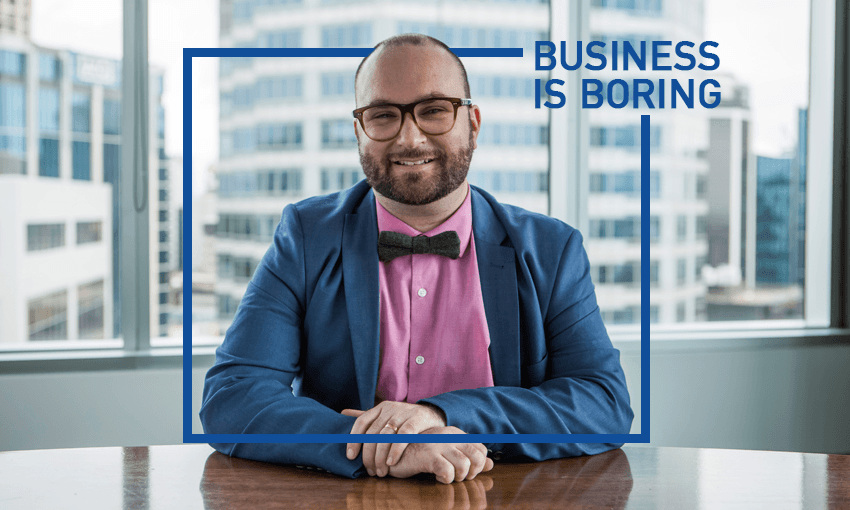Business is Boring is a weekly podcast series presented by The Spinoff in association with Callaghan Innovation. Host Simon Pound speaks with innovators and commentators focused on the future of New Zealand, with the interview available as both audio and a transcribed excerpt. This week, he talks to Nick Whitehouse, CEO and co-founder of McCarthyFinch, an artificial intelligence engine designed to work alongside lawyers.
How many times might a board member ask ‘what are we doing to innovate?’ or ‘how many times did anything happen?’
Well, at MinterEllisonRuddWatts, that question was answered by the start of an innovation lab. That led to a company joint venture spun out with VC backing to use AI to change how the law works.
The fantastically named McCarthyFinch is using neuro-linguistic programming (NLP), machine learning and human inputs to help analyse mountains of legal documents in a fraction of the time it would take a human. It augments humans to make decisions faster and cut out the legwork while looking out for the fishhooks. The company has jumped onto the world stage, winning awards like Sir Richard Branson judged Global Talent Unleashed gongs, and becoming the first local company to make the finals of the TechCrunch Start-up battlefield, pitching in front of an audience of up to six million.
With partners and clients including some of the biggest professional services and law firms, the idea is finding amazing traction. Nick Whitehouse, McCarthyFinch’s CEO, co-founder, and winner of Most Disruptive Leader at the Talent Unleashed Awards, joins me now.
Either download this episode (right click and save), have a listen below or via Spotify, subscribe through iTunes (RSS feed) or read on for a transcribed excerpt.
Where does the AI part of the story come in?
So if I go back to the fundamentals of what we’ve done, we’ve built an AI that’s really about learning. It’s about accelerating that knowledge and transferring that expertise, so we’ve built an AI that reads, writes and understands things like a lawyer, it reasons like a lawyer and there’s a bunch of learning that goes into it and this is where techniques like NLP are introduced.
We see AI as a toolbox and there are a number of different approaches you can take to solving problems. We don’t think one tool helps you build a house — you need to use all the tools to build a house. What we’ve done is built these models using all these different AI approaches, whether it be machine learning, natural language processing or natural language generating. We’ve experimented in all those areas and effectively, what we’ve done is create an AI that can understand how to read legally the way it should. So understanding things like the directionality of a contract… is it in your favour or is it in our favour, is this contract creating a condition that you must meet? An obligation? A benefit? Or a right?.
So when you sit there and you say ‘this is a contract that I’m happy with’, we’re able to extract all of that information and we’re able to set these sorts of things as standards… So when we see another contract come in, if those match that’s fine. But if they don’t match and you have a new obligation put on you, the question is ‘are you happy to accept that obligation put on you?’ So that’s sort of how that goes and we train the AI to understand that stuff out of the box and we allow you to set different tolerances.

